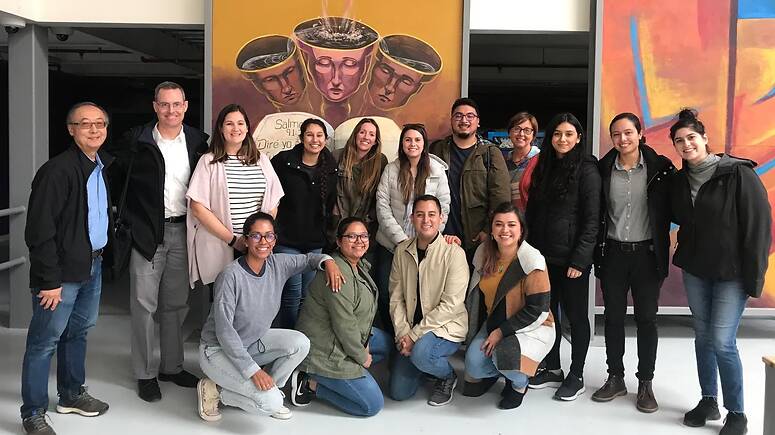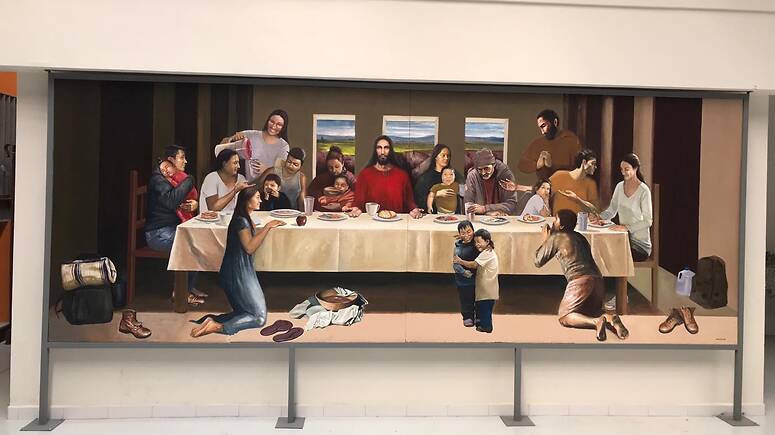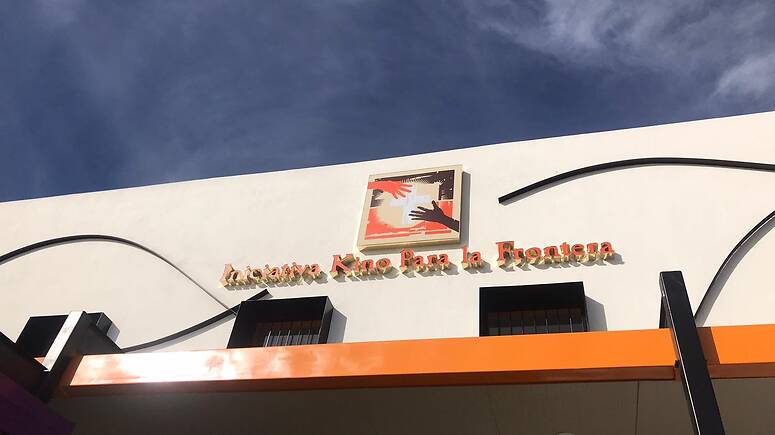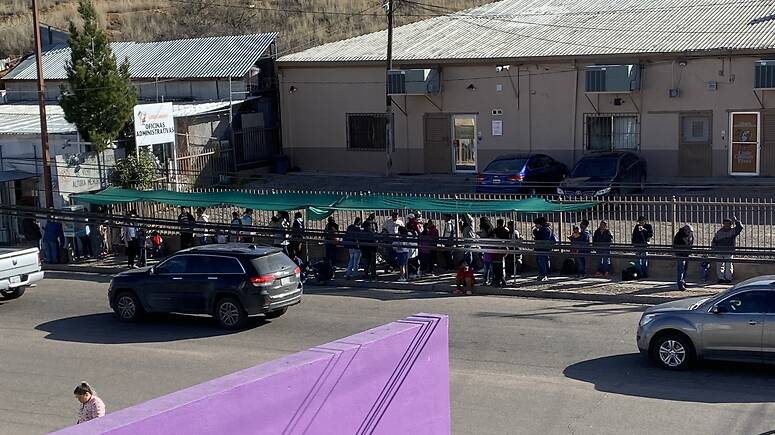
Pierless Bridges
The Joan and Ralph Lane Center for Catholic Social Thought and the Ignatian Tradition
In Pursuit of a Safe Existence
In early March, I had the opportunity to travel with the University of San Francisco School of Law’s Deportation Defense Clinic to the border that separates Nogales, Arizona, from Nogales, Mexico. Our task was to aid the Kino Border Initiative with providing asylum counseling to people who are seeking asylum in the U.S. Although I felt prepared and knowledgeable enough to provide preliminary asylum counseling because of Professor Bill Hing and Professor Jaqueline Brown Scott’s instructions, I was not prepared for the emotional and mental impact of seeing for myself what news articles and casebooks from class have talked about.
The day that we arrived, we went to the U.S. District Court for the District Court of Arizona in Tucson, where we observed mass prosecutions under Operation Streamline. Here, the U.S. government convicts about 70 people a day for the crime of entering the U.S. without inspection. At the moment we entered the courtroom, they had about 20 people with chains around their ankles, wrists, and waists. As soon as they all pled guilty, they were herded out of the courtroom like cattle to make way for the next group of 30 or so people up for prosecution. Besides the shock of seeing the lack of dignity with how these people were treated, it was also infuriating to learn that the criminal defense attorneys who represented them were not well-versed in immigration law nor on the impact that their client’s pleadings would have on their immigration cases.
Afterward, we made our way down to Nogales, Arizona, where we remained the rest of the time. In the context of the work that we did, I became so much more aware of my privilege as a U.S. citizen. As a group, we had no difficulty crossing the border into Mexico. No one stopped us or questioned us. With the same ease, we returned to the U.S., walking and bypassing immigration agents by simply flashing our U.S. passports and answering a couple of questions.
It was not only the ease with which we were able to cross the border that made me cognizant of my privilege, but also the stories of the people to whom I provided asylum counseling. One particular story resonated with me because of the work that I had previously done in domestic violence. A mother fled her country because the father of her young daughter had been extremely abusive. She had attempted moving within her country, but he continued to seek her and threaten her livelihood. Authorities in her country had been unwilling or unable to protect her. As we spoke, I observed the fear and shame with which she described some of the abusive incidents. I could hear her concern for the safety of her and her daughter and her worriedness that her daughter had begun to bite her fingers, exhibiting symptoms of trauma from the abuse she had witnessed at such a young age. This mother simply sought a safe existence with her young daughter. She hoped that she could find that safety in the U.S., where her abuser could not reach her.
It was difficult to realize that this mother was just a few feet away from safety and that the reality of borders and immigration laws were all just human constructs that, lately, under the new administration, have been harsh, inhumane, and against the safety of asylum seekers. She could not walk a few feet to safety in the U.S. as I was able to do. She had to wait, possibly for months until her number was called for her first hearing with an immigration officer. During that waiting period, she and her daughter would be vulnerable to the threat of her abuser and organized crime that pervasively targets the asylum seekers who wait at the border.
At some point, I took a break and went into the children’s room, where children were looked 9 after while their parents received asylum counseling. The children’s room provided an escape for the children, away from the trauma-filled stories that their parents described to those of us providing asylum counseling. I played with the children. It was painful to see how perhaps this brief moment was a rare moment in which they could have the normalcy of child’s play. A distraction from the fact that they were in an unfamiliar country or city, staying in unfamiliar places, and from the uncertainty of where they would remain in the future.
The uncertainty, despair, and danger that these asylum seekers face was so much more visceral when I had them in front of me, and I had to explain the new rules that may likely require them to remain in Mexico.
I was not prepared to see for myself how much humanity is lost in the ever-changing immigration policies of the Trump administration. The uncertainty, despair, and danger these asylum seekers face was so much more visceral when I had them in front of me, and I had to explain the new rules that may likely require them to remain in Mexico. What is lost in the new immigration policies is that these people are fellow humans with families and children who are fleeing danger, and they deserve to be treated with dignity and compassion. I left feeling deflated, feeling like I had not been able to do enough for them, and wondering what would become of the people with whom I spoke. However, I was reminded of images of volunteers taking care of the children, the attorneys explaining the new asylum policies and reviewing applications, my peers providing asylum counseling, volunteers serving food to the asylum seekers and the daily work that Kino does, and that gave me hope. That hope serves as fuel to complete my legal education and to continue advocating for asylum seekers through the practice of immigration law.
MARIBEL LOPEZ is a second-year law student at the University of San Francisco School of Law. She is currently a student clinician at the school’s Deportation Defense Clinic in which she is working on an asylum case. Additionally, she is vice president of USF La Raza Law Student Association which has the mission of creating community and supporting Latinx students through law school. Previously, she worked as a supervising health worker at The Sperm Bank of California. Lopez has also continuously volunteered at La Casa de Las Madres, a nonprofit that provides shelter and refuge to survivors of domestic violence.




